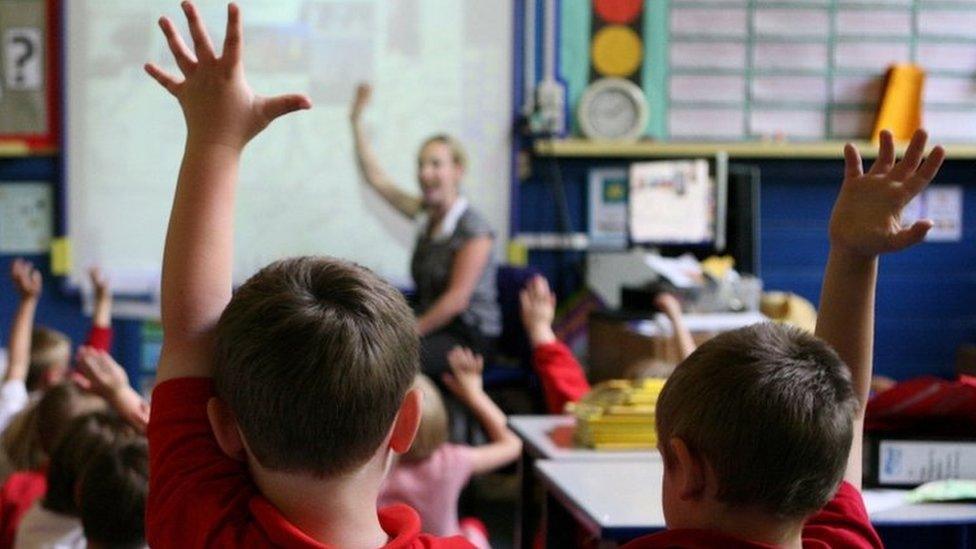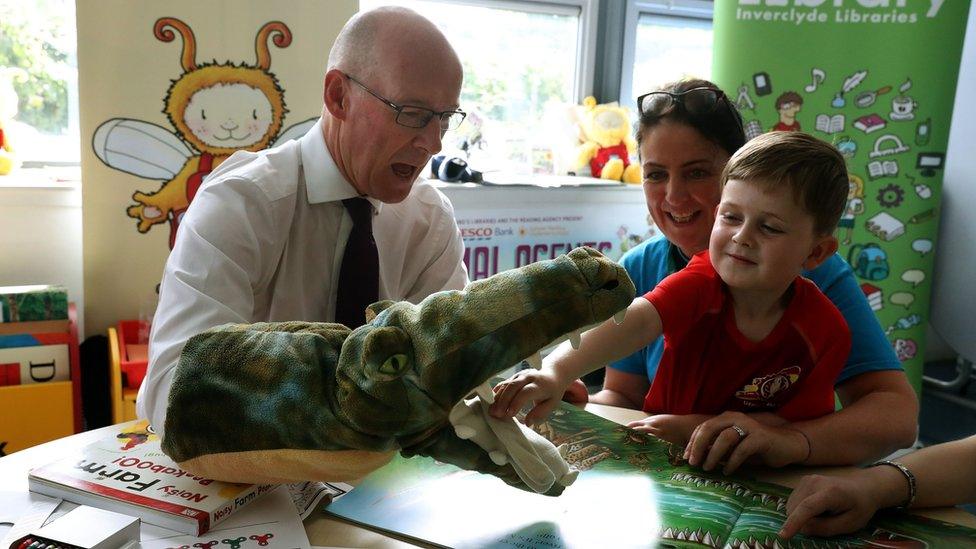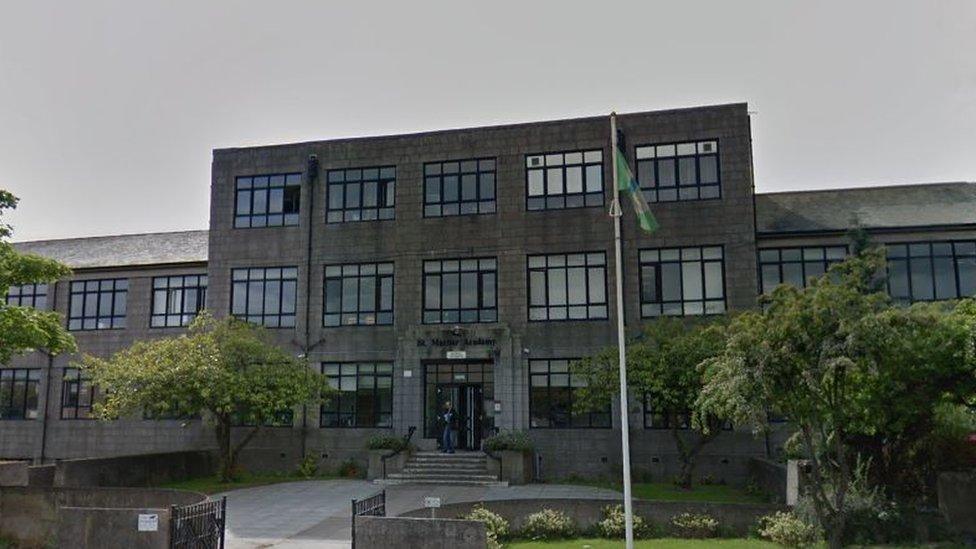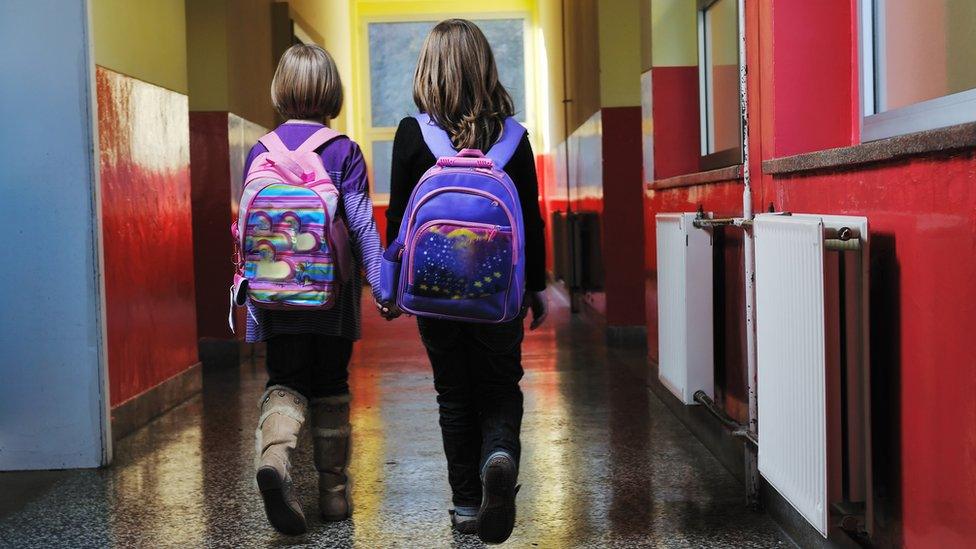Debate over Scotland's schools enters new term
- Published
- comments

Scotland's children are returning to school this week with the debate over education in the country set to intensify.
The Scottish government wants to focus on its efforts to raise attainment and help disadvantaged children.
But unions are set to step up their calls for a 10% pay rise.
Meanwhile opposition parties are highlighting teacher recruitment problems and calling for an end to standardised assessments for P1 pupils.
The Scottish government sees education as a top priority and wants to be judged on it.
It plans to empower head teachers, but it put a proposed education bill on ice just before the summer holidays after reaching an agreement with council organisation Cosla.
The government always argued it wants to give heads and parents more formal powers as they are best-placed to take the right decisions to raise attainment.
It should become clearer over the year whether councils are indeed empowering heads, and whether this is leading to steps parents will notice.

John Swinney has called education the government's "defining mission"
Opposition parties have also been stepping up the pressure on education - the government's focus on the issue has led to it becoming part of a political debate which, on occasions, has seemed more charged than the discussion between the government, teachers and other stakeholders in education.
One issue the Conservatives are highlighting is the number of vacancies in schools - it says 231 schools, or almost one in 10, were advertising at the start of this week. The Conservatives' figures include teacher vacancies, vacancies for support staff and free positions as head teachers.
The figures do not distinguish between posts which became vacant recently and those which are proving difficult to fill.
However, the party highlighted a number of schools and council areas with a significant number of vacancies.
St Machar Academy in Aberdeen had vacancies for five full-time staff and two part-time staff.

St Machar Academy in Aberdeen is one school with a number of staff vacancies
Labour recently highlighted falls in the amount councils have spent on education since 2010 - figures principally driven by a fall in secondary spending.
An issue raised by the Liberal Democrats and the EIS union is standardised testing in P1 - introduced across Scotland last year.
The party is likely to bring forward a motion at Holyrood calling for it to be scrapped, echoing concerns expressed by the EIS and the parents' body Connect.
The government will defend itself vigorously - it believes these assessments are helpful and a key part of its programme to raise attainment.

However, all these important issues for debate risk being overshadowed. The main teaching unions want a 10% pay rise which they believe will help restore the value of salaries, encourage more people into the profession and help end the problems some schools have filling vacancies.
Councils, the unions and the Scottish government negotiate pay at a special committee.
The offer on the table just now is worth 3% for those earning under £36,000 and 2% for those earning more.
This has been rejected by the unions and if a better offer is not made soon, the EIS union is likely to ballot members on industrial action - employers argue a 10% pay rise is not affordable and would also be concerned about setting a precedent.
A strike is not imminent or even inevitable but certainly seems to be on the horizon unless progress towards a pay deal is made.
And, of course, when the UK leaves the EU at the end of March, there could be some impact on education.
Brexit is not a huge issue in schools, but they are not completely immune either.
The General Teaching Council for Scotland recently reported a huge fall in the number of teachers from EU countries who wanted to register in Scotland, and said Brexit could well be a major factor in this.